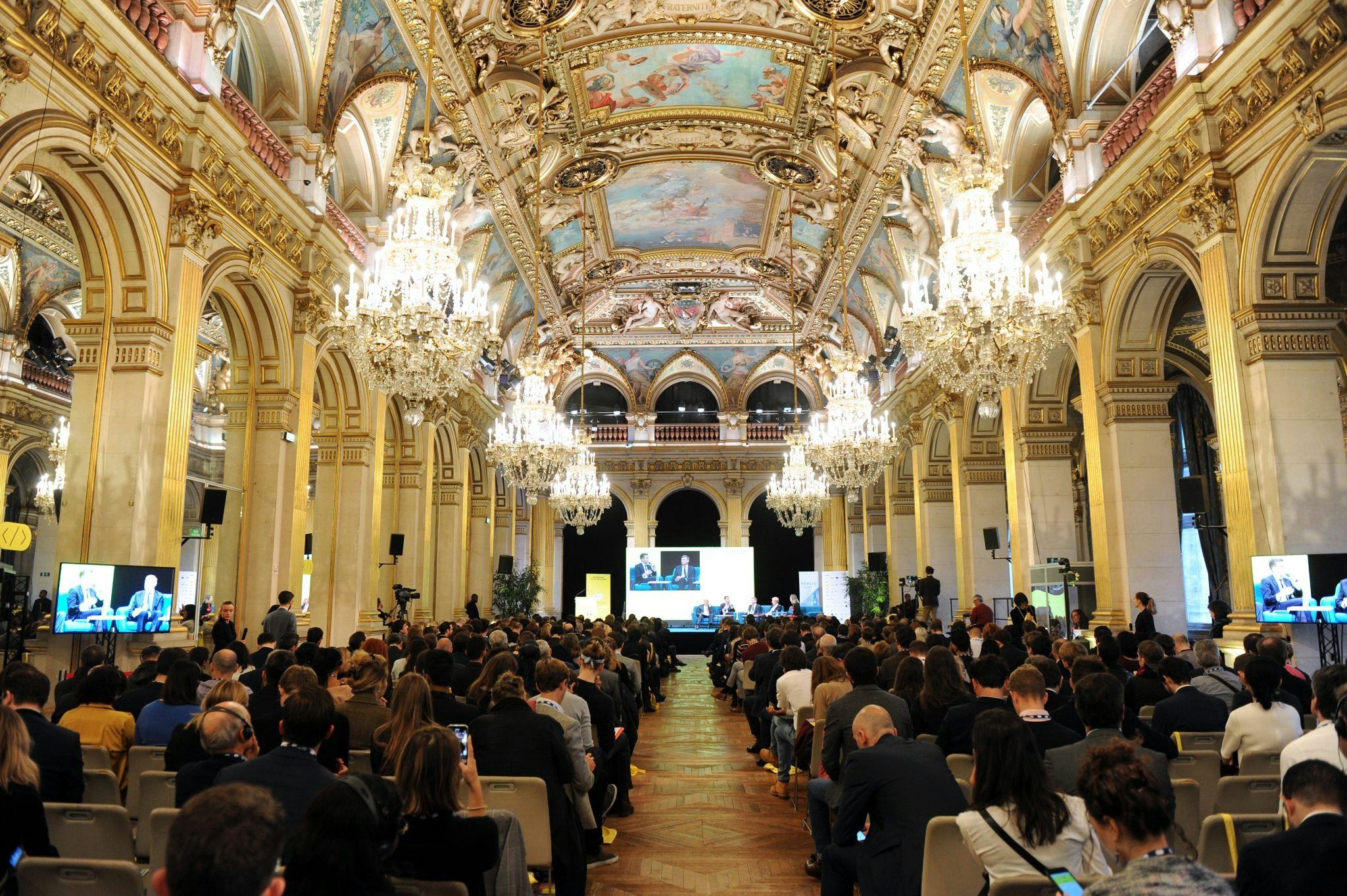After a long 17-hour budgetary meeting, the German Bundestag late last month approved a multi-billion-euro “Future Fund” to help late-stage startups expand their businesses.
The “investment fund for future technologies” is to provide a total of €10bn for the startup ecosystem by 2030 — in the hope of attracting at least €20bn in private investment.
The announcement of Germany’s Future Fund is big news — especially since startups in the country have traditionally struggled to get big cheques from local investors, and have relied on large foreign VC firms as a result.
According to a March 2020 report from Dealroom, the share of domestic capital in Germany is the lowest of any major ecosystem in Europe. And, foreign investment (mainly from the US and Asia) in German startups has been growing twice as fast as domestic investment.
These are facts that many German entrepreneurs have bemoaned for years.
Speaking to Sifted in November last year, Frank Thelen, chief executive of venture capital fund Freigeist capital, said it was time the German government created an investment fund for scale-ups — to match France’s €5bn fund. And, it seems like his prayers are finally being answered.
However, Christian Miele, President of the German Startups’ Association, and an investor at e.ventures, says that it’s not time to celebrate just yet. While the fund is generally regarded by the startup community as a win for the ecosystem, the “finer details” of the fund haven’t yet been worked out.
Questions still remain about how the funding model will actually work, who in the ecosystem will get the money, and how effective it will be in bolstering startups.
Indeed, the Future Fund has already received criticism from Bettina Stark-Watzinger, the parliamentary managing director of the FDP faction, for not having a proper roadmap for implementation.
“In particular, the lack of a concept for the all-important fund of funds is incomprehensible,” she recently told the Handelsblatt.
What we know
The way the model is expected to work is as follows: the KfW, Germany’s state development bank, will be given extra money to invest in VC funds. The idea is that this will encourage more private institutions like pension funds to invest more as well, ultimately prompting more money to flow into startups.
Some of the rest of the money will go to the European Investment Fund, which invests in VC firms at a European level, and the High-Tech Gründerfonds, which is a public-private venture capital investment firm based in Bonn which invests directly in early-stage tech companies with high growth potential. The exact split is not clear and still being worked out.
Filip Felician Dames, founding partner at Cherry VC, and a board member for KfW Capital, says that his so-called “fund of funds” from KfW is essential for mitigating risk and getting investors on board as long-term capital providers — helping to solve one of the key European issues of getting more private money into VC.
France similarly pledged to raise €5bn for late-stage tech startups last year by getting institutional investors to invest in VC funds, and asset managers who specialise in publicly-listed tech companies. There are similar measures in the UK. Other European countries are expected to follow suit.
Improving later-stage funding
One of the biggest motivations for the Future Fund is to create more growth-stage financing for startups – so that Germany can be in with a chance of spawning its own Google or Facebook, says Dames.
“If you look at Germany, there are few domestic growth funds – other than Lakestar and Hotspring, for example – that have more than €500m per fund, which is a very different scenario to the US,” he told Sifted, adding that the fund will enable the KfW to “write bigger cheques for bigger funds.”
“We desperately need a fund such as this in Germany,” says Judith Dada, Partner at La Famiglia VC in Berlin.
“International funds are catching on to the fantastic talent that we have in Germany/Europe, sometimes before local investors do – and they fill the void left by the limited local growth capital Germany has in later rounds.”
This is largely down to the sheer magnitude of foreign funds, as well as the US mentality which has “been primed for speed” due to the competitive market there, adds Dada.
All the VCs Sifted spoke to agreed that growth funds in Germany are slowly adjusting their speed mentalities. However, without the necessary capital, it is increasingly difficult for Germany to compete for advanced funding rounds internationally.
Miele says that in a free market, it is “absolutely fair” for investors from the US or Asia to invest in German companies. “In fact, I welcome that. We should never try to use protectionist instruments and build walls. At the same time, we should be capable of competing. The problem right now is that we can’t.”
Falling at the first hurdle?
While the aim of the fund is to close the later-stage funding gap, Miele is already doubting that this goal will be achieved.
“The original idea was to use this money to incentivise private investors to invest more money into later stage startups via an umbrella fund. Now, the fund is a different kind of construct than what it was originally meant to be,” he says.
That the €10bn is being “sliced into many different modules” – and spread out among several vehicles such as the European Investment Fund, High-Tech Gründerfonds and KfW – means that each investor will have different goals they want to achieve, which may or may not include financing later-stage startups.
However, Miele speculates that the cash will still go towards good things – like climate tech, and sustainable technologies.
An “initial push”
The fund could, nevertheless, be the “initial push” that the German startup scene needs to grow, says Dames. But, it’s important for the government to know the right point to “step back, and let the market do its thing too.”
The US is a positive example of this. The government plugged public money into its young, immature ecosystem to help stimulate its growth, and then slowly stepped back to watch it flourish.
“Once the baby could walk on its own, it didn’t need as much support anymore,” adds Dames.
Miele doesn’t see the state as necessarily the best investor, and agrees with Dames that too much government stimulus can be detrimental to prices and competition. He adds that the ideal scenario in Germany is for government funding to decrease over time, and private funding to increase, as that’s much more “healthy” for the ecosystem.
Some VCs in Germany are sceptical whether €10bn in state capital is even enough to make a meaningful impact on the growth of the startup scene. But, Miele says that the Future Fund “is just the tip of the iceberg.”
“I think we will need hundreds of billions more capital to make Germany, and Europe more widely, a competitive ecosystem against that of the US and Asia. This €10bn is just the start.”
Rallying government support
Germany’s federal government has been slow to offer their support for the startup ecosystem, due to regulatory hurdles, and, often, a lack of understanding among politicians of the needs of growing companies.
“Angela Merkel isn’t a startup person: she’s interested, but it’s not really her topic,” says Dames.
By comparison, President Emmanuel Macron is revered by many founders in Germany for getting startups “high up on France’s agenda” – launching support programs such as La French Tech, and publicly expressing his support for the local ecosystem, Dames adds.
Miele says that the recent conversations the German Startups Association has had with politicians have been extremely positive. He hopes this will be the start of a long-term partnership between the German government, and startup founders and associations across the country.
But first, they’ll have to learn to speak each other’s language.
“The importance of supporting startup growth is still a relatively new concept for many German ministers.” says Miele. “Politicians will need to adapt, learn, and be willing to change – and that’s going to be a very lengthy process.”
However, the fact that the government is - finally - willing to invest billions in German startups is a positive sign that more good could follow for the ecosystem.
“Now, it’s about nailing the details,” concludes Miele.


